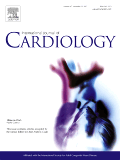 A cardiology journal has retracted a 2016 meta-analysis after the editors had an, ahem, change of heart about the rigor of the study.
A cardiology journal has retracted a 2016 meta-analysis after the editors had an, ahem, change of heart about the rigor of the study.
The article, “Ivabradine as adjuvant treatment for chronic heart failure,” was published in the International Journal of Cardiology, an Elsevier title.
The authors, a group at the Federal University of São Paulo, Brazil, concluded that:
The available data show that ivabradine did not reduce the risk of death and hospitalization for heart failure compared to placebo.
The online version of the paper — which has been cited once, according to Clarivate Analytics’ Web of Science — appeared last November. Shortly after, the editors received a letter from an international group of heart researchers who expressed concern about the quality of the meta-analysis and their omission of data (including their own results) more favorable to the drug.
Their letter, published in January, stated:
The recent paper by Mizzaci et al.[1] on ivabradine and chronic heart failure (CHF) contains a number of errors which we think should be corrected. While SHIFT[2] is the only outcome study with ivabradine in patients with CHF and reduced ejection fraction (HFREF) on which there was a significant beneficial effects of ivabradine, BEAUTIFUL[3] did not require CHF for inclusion. Nonetheless, Mizzaci et al. pooled the 17,422 patients from these two studies with 53 patients from a study not available in PubMed. Importantly, in Fig. 4 the numbers for cardiovascular mortality are wrong for both SHIFT and BEAUTIFUL. In addition, the references 2, 6, 8 and 12 do not reflect what is stated in the paper. Further, Mizzaci’s stated effects of ivabradine on Quality of Life (QoL) are based on two very small studies while the large SHIFT QoL sub-study showing improved QoL by ivabradine in 1944 patients[4] is not included. Neither does he mention the significant improvement in NYHA class by ivabradine in SHIFT[2]. Similarly, regarding remodelling Mizzaci et al do not include the largest study on remodelling by pharmacological therapy, the sub-study from SHIFT with 411 patients[5] in which ivabradine had a beneficial effect on remodelling.
A more relevant paper in this context is our pooled analysis from SHIFT and BEAUTIFUL demonstrating improved outcomes in patients with left ventricular dysfunction in sinus rhythm and heart rate ≥70 bpm (http://eurheartj.oxfordjournals.org/content/34/29/2263).
The authors of the letter note that all of them have received money, in the form of research grants or honoraria, from Servier, which markets ivabradine as Corlentor and Procorolan.
Their arguments evidently were persuasive. Per the retraction notice:
This article has been retracted at the request of editors as it is contains multiple serious errors in the data of its primary end-point that make its conclusions unreliable. For example, in Figure 4, the cardiovascular death rates cited from Fox 2008 and Swedberg 2010 are incorrect. K. Fox, et al. Lancet, 372 (2008), pp. 807–816; K. Swedberg et al. Lancet, 376 (2010), pp. 875–885.
Paolo Camici, editor of the IJC, said that despite the retraction, he thinks the journal’s peer review process functioned well:
In general, I am more than happy with the Journal’s peer review system and don’t think there is a need for changing any specific part of the process. These things happen once in a while and we must deal with them in the best and most transparent way.
Like Retraction Watch? Consider making a tax-deductible contribution to support our growth. You can also follow us on Twitter, like us on Facebook, add us to your RSS reader, sign up on our homepage for an email every time there’s a new post, or subscribe to our daily digest. Click here to review our Comments Policy. For a sneak peek at what we’re working on, click here.